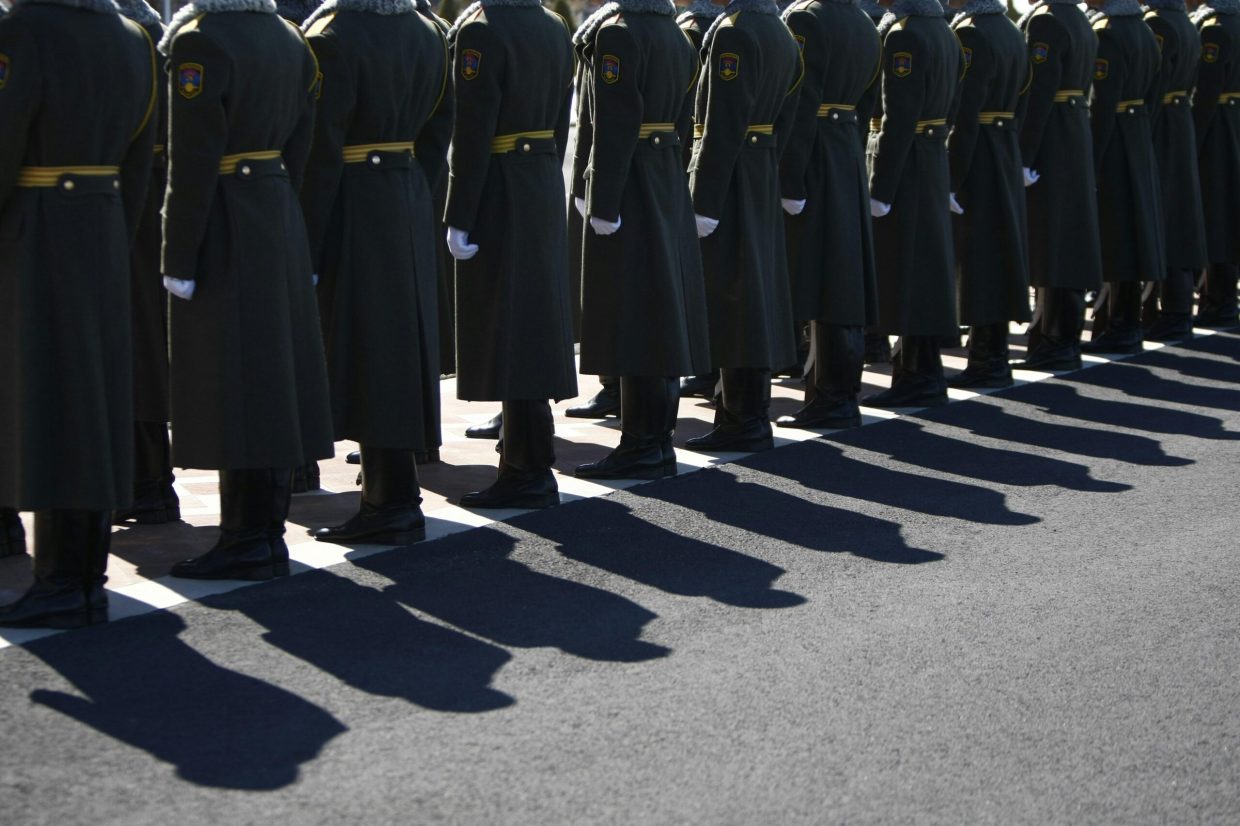In today’s complex world, the relationship between politics and military recruitment is more intertwined than ever before. Political decisions, public policy, and government messaging play a significant role in shaping who chooses to join the armed forces and why. From shifts in defense budgets to changing priorities on national security, the political climate can dramatically influence recruitment trends. In this article, we’ll explore how current political factors impact military enlistment, shedding light on the broader implications for both the armed forces and society as a whole. Whether you’re a policy enthusiast, a prospective recruit, or simply curious, understanding this connection offers valuable insights into the dynamics behind the headlines.
Table of Contents
- The Impact of Political Climate on Youth Perceptions of Military Service
- Understanding Policy Changes and Their Effects on Recruitment Strategies
- Addressing Recruitment Challenges Through Inclusive and Transparent Communication
- Recommendations for Enhancing Military Recruitment Amid Political Shifts
- Future Outlook
The Impact of Political Climate on Youth Perceptions of Military Service
In recent years, the intersection of politics and military recruitment has become increasingly visible, especially among younger generations. Youth today are highly attuned to the political climate and often interpret military service through a lens shaped by current events and governmental policies. When political discourse emphasizes national security or patriotic duty, military enlistment can see a subtle boost. Conversely, when political narratives focus on the consequences of conflict or government mistrust, skepticism among youth about joining the armed forces tends to rise. Understanding these nuances is critical for recruitment strategies aiming to connect authentically with potential enlistees.
Several key factors influence how young people perceive military service amid shifting political landscapes:
- Media portrayal: Political agendas often shape the media’s depiction of military actions, impacting youth opinions on the honor or risks of service.
- Policy transparency: Clear communication about military goals and government intentions fosters trust, which is crucial for recruitment success.
- Social movements: Advocacy around peace, civil rights, or nationalism alters how the armed forces are viewed as either protectors or instruments of political power.
By addressing these concerns thoughtfully, recruitment efforts can resonate more effectively, helping enlistment campaigns adapt to the evolving political sentiments of the younger population.
Understanding Policy Changes and Their Effects on Recruitment Strategies
Policy shifts frequently act as catalysts, compelling military recruitment teams to recalibrate their approaches swiftly. When government mandates prioritize certain branches or technologies, recruitment strategies evolve to spotlight those areas. For example, an increased focus on cybersecurity within defense budgets encourages recruiters to target tech-savvy candidates through specialized campaigns and partnerships with educational institutions offering relevant programs. These policy-driven changes not only adjust target demographics but also influence the tone and content of recruitment messaging—shifting from traditional patriotism to innovation and career advancement opportunities.
Recruiters must also navigate several practical challenges resulting from new policies, including:
- Compliance with legal changes: Ensuring recruitment practices align with updated equal opportunity and diversity laws.
- Adaptation to budget reallocations: Prioritizing recruitment efforts within fluctuating financial constraints determined by defense spending.
- Responding to public sentiment: Adjusting strategies in response to shifts in national mood influenced by policy debates and geopolitical events.
Understanding these multifaceted effects is crucial for crafting recruitment campaigns that are not only effective but also resonate authentically with potential recruits in a rapidly evolving political environment.
Addressing Recruitment Challenges Through Inclusive and Transparent Communication
Effective recruitment in today’s military landscape requires a commitment to inclusive communication that resonates with diverse communities. By fostering open dialogues and actively listening to the concerns and aspirations of potential recruits, organizations can bridge cultural and social gaps that often act as barriers. Transparent messaging about career opportunities, benefits, and expectations ensures that candidates feel valued and informed from the outset, which significantly enhances trust and willingness to engage with the recruitment process.
To overcome recruitment hurdles, decision-makers should prioritize:
- Clear, consistent information tailored to varied demographic groups.
- Collaborative efforts with community leaders and advocacy groups.
- Responsive feedback mechanisms that address concerns promptly.
- Utilizing digital platforms to reach younger, tech-savvy audiences more effectively.
Such approaches create a recruitment atmosphere that not only attracts a broader pool of talent but also establishes a foundation of respect and transparency, essential for sustaining long-term interest and commitment within the military ranks.
Recommendations for Enhancing Military Recruitment Amid Political Shifts
To adapt recruitment strategies effectively during periods of political change, military institutions must prioritize transparency and communication. By openly addressing the impact of political shifts on defense policies, recruiters can foster trust and reduce uncertainty among potential candidates. Additionally, engaging with community leaders and leveraging social media platforms helps bridge the gap between the military and the public, highlighting the evolving roles and benefits of service in a changing political landscape.
Targeted initiatives also prove essential in attracting diverse talent pools. These can include:
- Customized outreach programs in underrepresented regions or demographics
- Flexible career pathway options that align with contemporary social and political values
- Investment in educational partnerships to showcase military-academic synergies
By adopting these focused measures, recruitment efforts become resilient against political fluctuations, ensuring a steady influx of motivated and capable individuals.
Future Outlook
In the end, it’s clear that politics continues to play a significant role in shaping military recruitment trends today. From policy shifts to public perception, political decisions influence not only who joins the armed forces but also how recruitment efforts are structured and communicated. Understanding this interplay helps us better appreciate the broader social and strategic dynamics at work. As the political landscape evolves, staying informed about these trends will be key for anyone interested in the future of military service and national security. Thanks for reading, and feel free to share your thoughts on this important topic!













